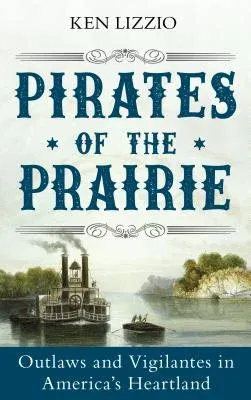Ken Lizzio
(Author)Pirates of the Prairie: Outlaws and Vigilantes in America's HeartlandHardcover, 1 September 2018

Qty
1
Turbo
Ships in 2 - 3 days
In Stock
Free Delivery
Cash on Delivery
15 Days
Free Returns
Secure Checkout

Print Length
248 pages
Language
English
Publisher
Lyons Press
Date Published
1 Sep 2018
ISBN-10
1493036599
ISBN-13
9781493036592
Description
Product Details
Author:
Book Format:
Hardcover
Country of Origin:
US
Date Published:
1 September 2018
Dimensions:
23.11 x
15.49 x
2.29 cm
ISBN-10:
1493036599
ISBN-13:
9781493036592
Language:
English
Pages:
248
Publisher:
Weight:
453.59 gm